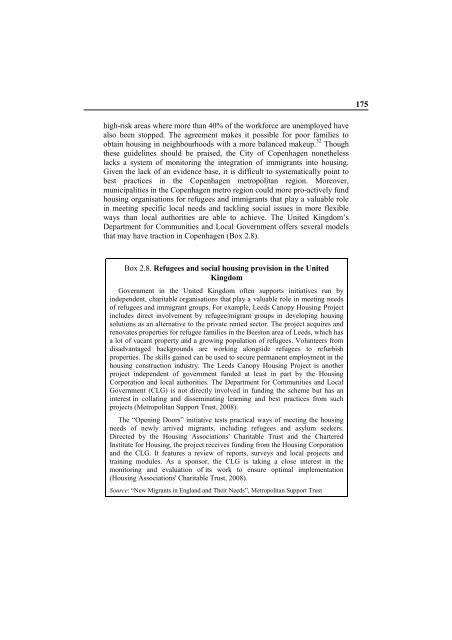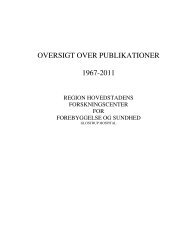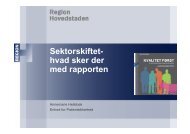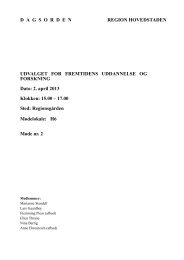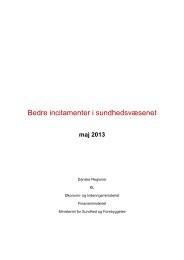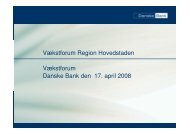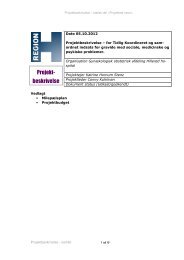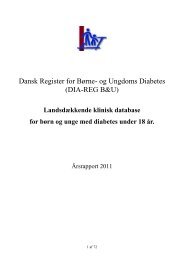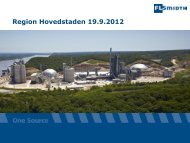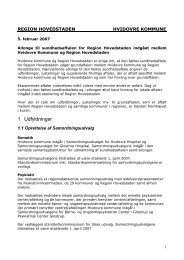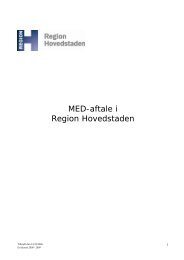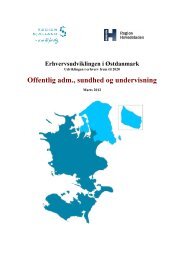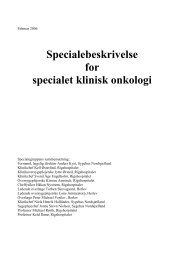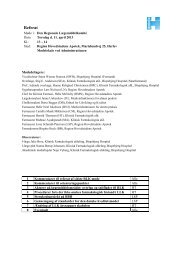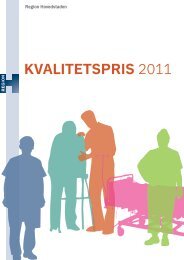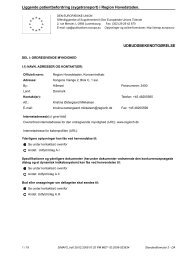Territorial Review Copenhagen - Region Hovedstaden
Territorial Review Copenhagen - Region Hovedstaden
Territorial Review Copenhagen - Region Hovedstaden
You also want an ePaper? Increase the reach of your titles
YUMPU automatically turns print PDFs into web optimized ePapers that Google loves.
175<br />
high-risk areas where more than 40% of the workforce are unemployed have<br />
also been stopped. The agreement makes it possible for poor families to<br />
obtain housing in neighbourhoods with a more balanced makeup. 32 Though<br />
these guidelines should be praised, the City of <strong>Copenhagen</strong> nonetheless<br />
lacks a system of monitoring the integration of immigrants into housing.<br />
Given the lack of an evidence base, it is difficult to systematically point to<br />
best practices in the <strong>Copenhagen</strong> metropolitan region. Moreover,<br />
municipalities in the <strong>Copenhagen</strong> metro region could more pro-actively fund<br />
housing organisations for refugees and immigrants that play a valuable role<br />
in meeting specific local needs and tackling social issues in more flexible<br />
ways than local authorities are able to achieve. The United Kingdom‘s<br />
Department for Communities and Local Government offers several models<br />
that may have traction in <strong>Copenhagen</strong> (Box 2.8).<br />
Box 2.8. Refugees and social housing provision in the United<br />
Kingdom<br />
Government in the United Kingdom often supports initiatives run by<br />
independent, charitable organisations that play a valuable role in meeting needs<br />
of refugees and immigrant groups. For example, Leeds Canopy Housing Project<br />
includes direct involvement by refugee/migrant groups in developing housing<br />
solutions as an alternative to the private rented sector. The project acquires and<br />
renovates properties for refugee families in the Beeston area of Leeds, which has<br />
a lot of vacant property and a growing population of refugees. Volunteers from<br />
disadvantaged backgrounds are working alongside refugees to refurbish<br />
properties. The skills gained can be used to secure permanent employment in the<br />
housing construction industry. The Leeds Canopy Housing Project is another<br />
project independent of government funded at least in part by the Housing<br />
Corporation and local authorities. The Department for Communities and Local<br />
Government (CLG) is not directly involved in funding the scheme but has an<br />
interest in collating and disseminating learning and best practices from such<br />
projects (Metropolitan Support Trust, 2008).<br />
The ―Opening Doors‖ initiative tests practical ways of meeting the housing<br />
needs of newly arrived migrants, including refugees and asylum seekers.<br />
Directed by the Housing Associations' Charitable Trust and the Chartered<br />
Institute for Housing, the project receives funding from the Housing Corporation<br />
and the CLG. It features a review of reports, surveys and local projects and<br />
training modules. As a sponsor, the CLG is taking a close interest in the<br />
monitoring and evaluation of its work to ensure optimal implementation<br />
(Housing Associations' Charitable Trust, 2008).<br />
Source: ―New Migrants in England and Their Needs‖, Metropolitan Support Trust


